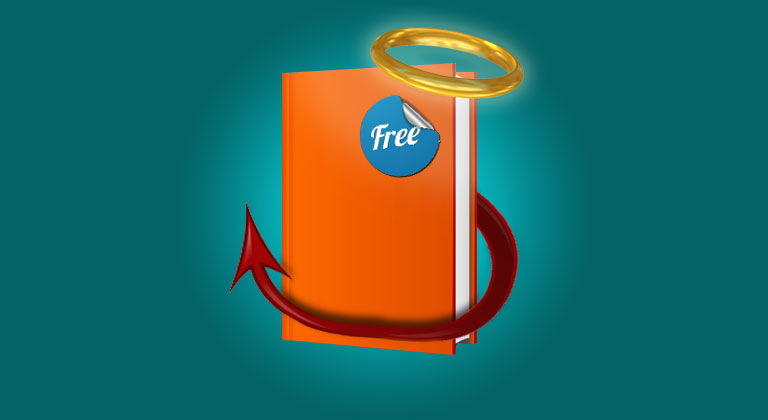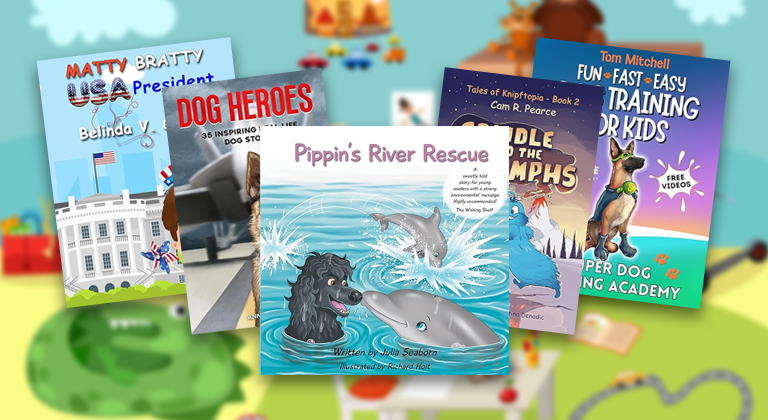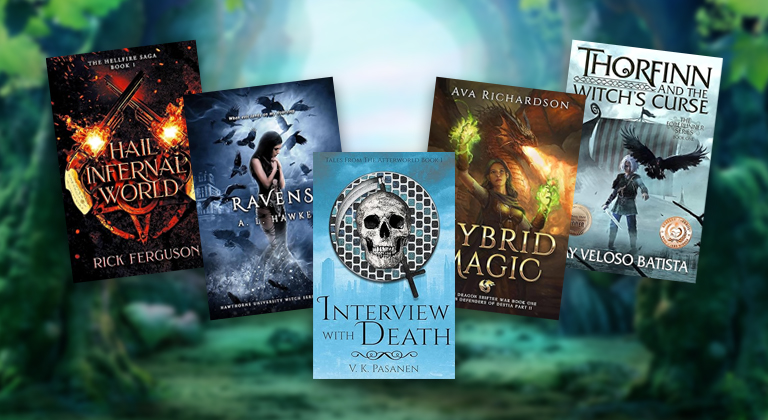The Complex Relationship Between Authors and Free Books
There’s a lot of mistaken belief when it comes to free books, from both authors and readers alike. After all, whether they’re doing it for the love of the art, or just as a job, most authors still want to earn money from their work, so how can free books ever be a good thing? The truth is, the relationship between authors and free books go back a long time – and like any relationship… it’s complicated.
Every so often I see a reader don their white hat to make the argument that they don’t use an ARC program because they think that authors should get paid for their work.
An admirable sentiment, for sure. Still, I can’t help but wonder if those same readers have ever used a library, or borrowed a novel from a friend? After all, readers have been using those as traditionally acceptable sources of free reading material since the dawn of books. Yet you rarely hear criticism about them, despite the fact that while the author was paid for the initial copy sold they didn’t get a penny more for the countless reads that came from sharing those copies.
So what’s the difference between those examples and an ARC program (or any other sort of legitimate source of free online reading material)?
Turns out, quite a bit – but all of them favor the online sources of free material over those more traditional types of borrowing books.
It’s A Problem of Perception
Online piracy has been in the media for so long that everyone is aware of the issue by now. It started with games and other applications, then it hit music, and eventually books as well. If you sell any sort of digital product, piracy is going to affect you. And while the issue may not be quite as bad as some believe, no one wants their work to be stolen.
The battle against piracy is ongoing but is unlikely to ever really stop. It took dozens of takedown notices from major publishers like Penguin Random House and HarperCollins before one of the worst offending websites – OceanofPDF – was shut down last week, but we know from experience that it won’t last. Like the hydra, the moment one pirate site is closed, two more spring up in its place.
But another unfortunate side-effect of this ongoing issue is that many have come to believe there is some sort of equivalence between the idea of “free books” and piracy. As soon as they learn that a book is free online, they immediately assume it must be stolen, or that somehow authors are getting ripped off.
In most instances, that isn’t the case at all.
Aside from the blatant pirate sites, there are actually plenty of options to get free eBooks that are completely sanctioned – even desired – by the authors themselves.
It’s A Difference of Choice
When it comes to legitimately free books, there are different degrees of what that really means – from buffet free, to free for some, to totally free – but they all have one thing in common. The choice to offer the book for free was done intentionally by the author instead of being foisted upon them by an online pirate.
And given the variety of ways and places those free books are offered, readers are also given more choice as to how they can find and receive that content.
Buffet Free
While not totally free, this category provides all you can read for one low price – sort of like Netflix or Spotify, but for books. Amazon’s Kindle Unlimited is the biggest example of this, boasting a library of over 1 million titles to choose from, including some audiobooks.
Ideally this would be the best of both worlds, giving readers a low monthly price and a huge assortment of books to read while still paying authors from the pool of money collected from those fees. Unfortunately, not everyone agrees that the payouts are fair and the program has been plagued by scams and people trying to cheat the system. This, along with the exclusivity requirement, has limited the number of books that actually participate in the program, and have led to it being mostly populated by books from self-published and newer authors (which isn’t necessarily a bad thing!).
Free For Some
This category includes a variety of sources, where free books are available but only to some readers. In most cases, it isn’t difficult for anyone interested to become part of that group, but it usually involves joining an author’s mailing list directly or simply signing up for an ARC program like ours here at Hidden Gems.
Totally Free
The easiest place to find legitimately free books that don’t require joining lists or becoming a member to anything are on the online bookstores. Although most books listed do have a price attached, some authors choose to list some of their books completely for free.
So in the cases where authors are willingly, knowingly, and often eagerly providing free books to readers – the question remains – why would they do that?
The answer is actually quite simple.
Marketing.
Free Done Right Leads To Money
No matter how an author chooses to distribute their free books, the reasoning behind it is the same. Free copies are sent out in the hopes that they’ll lead to something tangible in return – increased exposure, reviews, new fans, etc.
In the days of traditional publishing, if an author was lucky enough to get a deal they would often have the weight – and budget – of those big companies behind them to handle the marketing and drive sales. But with the rise of self-publishing, authors are responsible for doing it all themselves – not to mention footing the bill. And to make matters worse, there are far more books out there to compete with. Standing out from the crowd is much harder than it used to be.
Promoting a book in a newsletter or by buying ads on Facebook or elsewhere can be expensive but making free digital copies available can be one of the cheapest forms of marketing – and if done right can be very effective. Sure, there is the soft cost around loss of sales – but in many cases the people downloading the free books aren’t the author’s regular customers. Instead, they’re potential new customers, which can be far more valuable.
Similarly, if an author can get reviews back from some of the free copies they send out – by using an ARC service, or even by mining their own list for reviewers – they can raise the credibility of their book in the marketplace – another marketing tool that can lead to increased sales. Reviews give a book the social proof that someone else has read it, allowing potential buyers to see what others thought about it first. And in today’s socially driven world, that sort of marketing has become even more relevant and valuable.
Self-Published Authors Create Their Own Success
The key is the control an author has over their own destiny.
These aren’t unwitting novelists whose books have been stolen and offered up on virus laden piracy sites. Rather, these are intelligent entrepreneurs who have made informed choices aimed at boosting sales – becoming authors not only of their books, but also of their own success.
That means that if an ARC service is offering free copies of a book, turning your nose up at it because you want to support the writer is doing exactly the opposite. Authors want readers to download those books, hopefully choosing to then leave a review and maybe even becoming a new fan of their work. The authors themselves are the ones that provided the service with the copies to distribute freely to readers in the first place – which is certainly not something that can be said about the physical copy someone borrowed from a friend.
So while libraries and lending books may also provide exposure, they do so far more slowly – one reader at a time. And those avenues aren’t necessarily sanctioned by the author and only pay them a fraction more than when they’re ripped off completely by piracy sites.
Free books distributed online in places where an author has made an informed choice to do so, however, are far more helpful and valuable.
Just because you got it for free, doesn’t mean the author is getting ripped off. It’s just the opposite.
So why not help an author out by joining our ARC service today, or sharing this article or link with someone who might? Each month we send out over 10,000 copies across 15 different genres, and have worked with thousands of authors – most of whom use our service regularly. You only sign up for the books you’re interested in and read as often as you have time for. No fees, no catches. The author’s only hope is that you choose to leave an honest review on Amazon when you’re done.












Thank you for addressing the importance of building a strong personal brand and online presence when pursuing money-making opportunities. It’s a valuable asset in today’s digital world.
Thank you for addressing the importance of building a strong personal brand and online presence when pursuing money-making opportunities. It’s a valuable asset in today’s digital world.